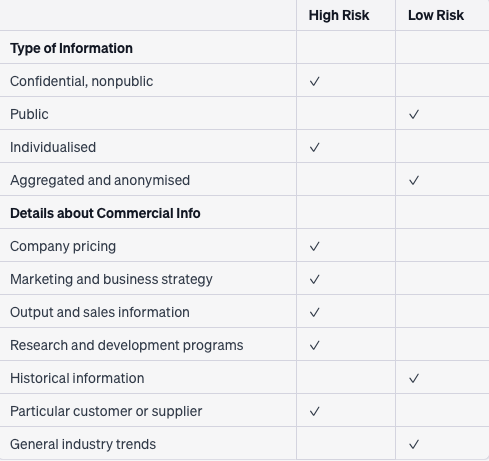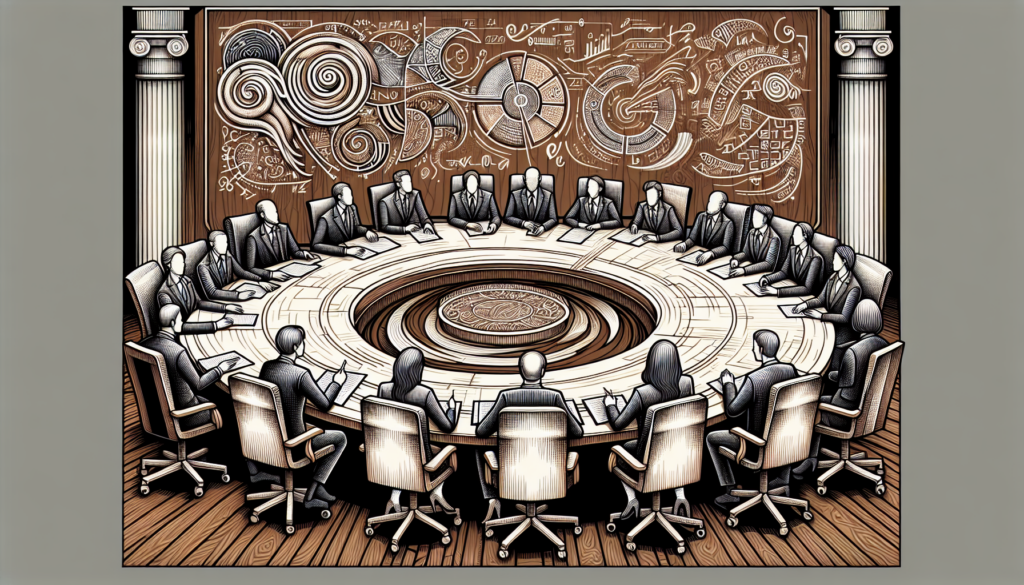In the realm of fierce competition and mutual striving, I have witnessed the propensity among growth-oriented corporations to exchange vital information with their rivals. As a managing partner of Montague Law with over a dozen years of experience guiding high-growth companies, I, John Montague, aim to shed light on the potentially treacherous waters of this exchange.
Indeed, collaborations such as research and development agreements, joint commercialization agreements, or joint bidding arrangements often necessitate some form of information exchange. Competition laws, in their wisdom, acknowledge the potential advantages of such exchanges. But proceed with caution, dear reader. Violations of these competition laws can unleash a tempest of negative consequences, including substantial fines, reputational mauling, possible private damages actions, and criminal sanctions.
When information sharing reduces the element of strategic uncertainty, thus enabling competitors to predict and modify their behavior, we encounter the edge of a precipice. For instance, discussing future prices could set a dangerous precedent that reeks of price-fixing – a strictly outlawed form of cartel under competition law. The scent of danger becomes all the more potent when non-public, strategic commercial information such as current or future pricing, changes in production volumes, or product launches is being aired.
The art of determining what can and cannot be legally exchanged can be likened to deciphering an encrypted code. Therefore, I present to you a set of guiding principles and practical examples for your consideration.
The mode of information exchange – be it private, public or via a third party – is immaterial. No written or explicit agreement is necessary to make the exchange sensitive. A single encounter or dialogue can cross the line of competition law. Bilateral exchanges are not a requirement; even one-way communication can land you in hot water. Merely being present when a competitor reveals future pricing can breach competition law, even without any explicit agreement between the attendees. There exists a presumption of market impact. Receiving unsolicited, sensitive information from a competitor implies an acceptance and subsequent breach of competition law, barring a clear rejection of said information. The plea of ignorance or herd behavior holds no ground in the court of competition law. The principle of proportionality prevails. Information exchange for procompetitive reasons may not cause a stir, provided the volume and nature of the information aligns with the procompetitive objective.
As we delve into the specifics, it is essential to understand that there’s no exhaustive or definitive list of permissible or prohibited information types. However, a general rule of thumb is that sharing details about current and future business endeavors poses a higher risk compared to disseminating historical information. Let the nuance of competition law guide your steps as you navigate the complex and often turbulent business landscape. Please see the table below for a visual representation.

As we sail through the seas of competition, it is essential to chart a careful course. Here are a few practical waypoints to guide you as you exchange information with competitors.
Chart Your Own Course
- Your commercial strategy should always be a product of your own independent decision-making.
Equip Your Crew
- Invest in training your employees on the subtleties of what they can and cannot discuss with competitors.
In The Thick Of A Meeting
- Set the Coordinates: Have a preset agenda for any meetings with competitors. This agenda should ideally be reviewed by a legal counsel.
- Avoid Forbidden Shores: Engage only in formal meetings, and avoid informal gatherings before and after these formal engagements.
- Keep a Logbook: It is imperative to record the proceedings of the meetings. Ensure someone is responsible for taking minutes.
- Safe Conversations: Stick to discussions that don’t involve competitively sensitive information.
- Emergency Evacuation: If you suspect a particular discussion might infringe competition laws, request an immediate halt. If the situation doesn’t change, make a hasty exit and make sure your departure is reflected in the minutes.
Post-Meeting Course Correction
- Once the meeting has concluded, review the minutes with a discerning eye.
Dealing with Electronic Correspondence
Email communication can be a minefield of potential violations. If you find yourself in possession of an email laden with sensitive information, follow these steps:
- Disassociate: Respond immediately, clearly stating that you have not read or acted upon the information, and politely but firmly request the sender to refrain from sending such information in the future.
- Limited Distribution: Do not spread the information any further unless you are notifying your lawyer about the situation.
In the turbulent seas of high-stakes business, these strategies will keep you from running aground on the shoals of competition law violations.



